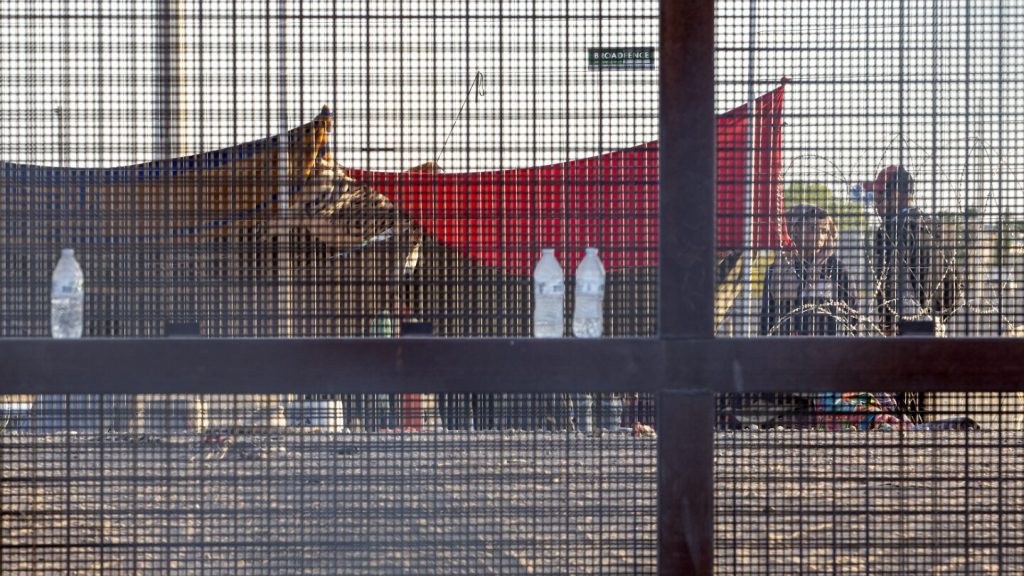A judge ruled that migrant children waiting in makeshift camps along the U.S.-Mexico border for processing by the Border Patrol are indeed in the agency’s custody and subject to a court-supervised agreement setting standards for their treatment. This decision has far-reaching implications, as the demographics of who is coming to the United States have changed over the years, with families and children now making perilous journeys to seek a better life. The Border Patrol must adhere to the court ruling and quickly process these children, placing them in facilities that are deemed “safe and sanitary” as per the 1997 court settlement guidelines.
The issue of when the children officially enter Border Patrol custody is crucial due to the 1997 court settlement outlining how migrant children in U.S. government custody should be treated. This includes time limits on their detention and access to basic amenities like toilets, sinks, and temperature controls. The Department of Homeland Security is now obligated to process the children promptly and ensure they are placed in safe and sanitary facilities. The border camps have become a contentious issue between immigrant advocates and the federal government, with advocates arguing that the U.S. government bears responsibility for the children in its custody.
Children traveling alone are supposed to be turned over to the U.S. Health and Human Services Department within 72 hours, which generally releases them to family members in the United States while their asylum cases are considered. Families seeking asylum are often released into the country while their cases progress through the courts. The ruling by U.S. District Judge Dolly Gee emphasizes the need for federal agencies to adapt to the changing demographics of migrants arriving at the U.S. border, shifting from single adult males seeking work to families with children seeking asylum.
Advocates have hailed the judge’s decision as a victory for the children in open-air detention sites but lamented that a court order was necessary to compel the government to comply with basic human decency and legal requirements. The National Center for Youth Law’s senior director of immigration, Neha Desai, has called on Customs and Border Protection to swiftly adhere to the court’s order, ensuring that children in its custody receive essential needs such as food, shelter, and medical care. The agency has stated that it is reviewing the court’s order and will continue transporting vulnerable individuals and children encountered at the border to its facilities as quickly as possible.
The legal challenge focuses on two areas in California where migrants who cross the border illegally wait in makeshift camps under open skies or tents, sometimes lacking adequate food and water. Judge Gee found evidence that Customs and Border Protection has physical control over minors in these outdoor locations, as they occasionally transport or drop off migrants at the camps and organize them based on their arrival times. The agency’s juvenile coordinator must now maintain records of minors held in custody for more than 72 hours, including time spent at open-air sites, to ensure compliance with the court agreement. Gee has set a deadline for the coordinator to report on how the agency is meeting the judge’s order by May 10.
The Justice Department argued during a hearing that Border Patrol agents directing or escorting migrants to the camps were akin to law enforcement officers managing traffic to prevent disorder and disarray. The court ruling emphasizes the importance of upholding the rights and welfare of migrant children in U.S. government custody, urging agencies to provide proper care, facilities, and services while they await processing and asylum consideration. The judge’s decision underscores the ongoing challenges faced by federal agencies in handling the influx of families and children arriving at the U.S.-Mexico border, requiring a reevaluation of policies and practices to address their unique needs and rights.


